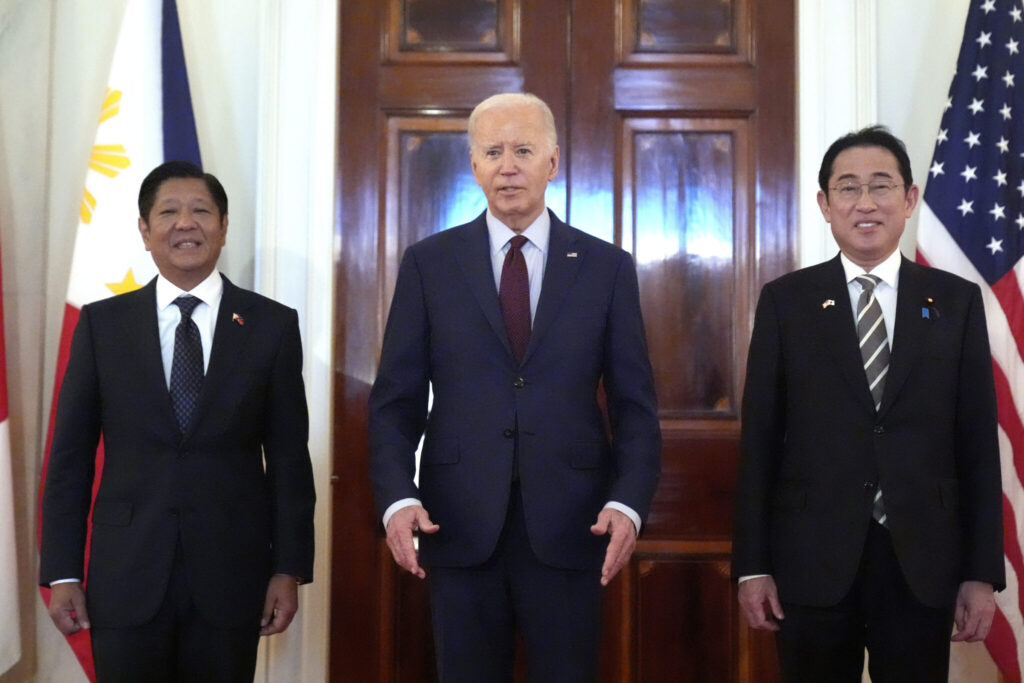
US President Joe Biden (center), Philippine President Ferdinand Marcos Jr. (left), and Japanese Prime Minister Fumio Kishida pose before a trilateral meeting in the East Room of the White House in Washington, Thursday, April 11, 2024. (AP Photo/Mark Schiefelbein)
MANILA, Philippines — The recent trilateral summit of the Philippines, Japan, and the United States should not be deemed as a threat “by any peace-loving country.”
The Department of Foreign Affairs (DFA) explained anew that the goal of the historic US-PH-Japan meet was to promote peace as it responds to the Philippines’ development needs.
“It is the sovereign choice and decision of the Philippines to strengthen our alliance with the United States and our strategic partnership with Japan, in accordance with our national interests and in line with our independent foreign policy,” the DFA said in a statement Thursday, in a response to China’s remarks criticizing the trilateral meeting in Washington D.C. on April 11.
READ: Trilateral pushback against China
“Our actions are in line with international law and complement our commitments in other regional and multilateral forums,” it added.
According to the DFA, the trilateral meet was nothing but “an admirable aspiration that should not be considered a threat by any peace-loving country.”
China earlier expressed its opposition to the summit, calling it a “stocking bloc confrontation” in the West Philippine Sea.
But contrary to China’s claims, the historic trilateral summit was not all about the West Philippine Sea row.
Still, the DFA responded to China’s statements, maintaining that it is China’s “excessive maritime claims and aggressive behavior, including its militarization of reclaimed features” that are undermining regional peace and stability and raising tensions in the region.
“In the case of the South China Sea, the UN Convention on the Law of the Sea and the final and legally-binding 2016 Arbitral Award provide definitive lawful basis for the determination of the sovereign rights and jurisdiction within the Philippines’ maritime entitlements,” said the DFA.
READ: PH wins arbitration case over South China Sea
It likewise slammed China for its “unwarranted references to the Cold War,” which the DFA said only sensationalizes the situation and misrepresents the peaceful purpose of the trilateral cooperation.
Apart from expressing its strong opposition to the trilateral summit, China had also accused the US of “clinging to its Cold War mentality” and “threatens other countries” with its bilateral alliance treaties.
China said “relevant countries” are joining the US to serve as mere pawns.